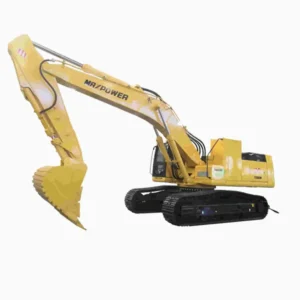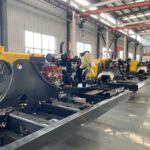Did you ever stop to wonder why excavator bucket teeth are so important? It’s easy to take them for granted, but their importance is undeniable. They’re essential for the smooth and efficient operation of any excavator and can help your construction projects run on time and within budget. Unfortunately, many people don’t know much about these key components. In this blog post, we’ll explore the truth about excavator bucket teeth and how they play a crucial role in the success of your business. Read on to learn more!
What are excavator bucket teeth?

There are many different types of excavator bucket teeth, but they all have one thing in common: they are designed to dig into the ground and break up material. The teeth are usually made from a tough metal, such as carbide, and they can be very sharp.
The different types of bucket teeth include:
• Standard teeth: These are the most common type of tooth, and they are designed for general purpose digging. They typically have a blunt leading edge and a sharp cutting edge.
• Multi-purpose teeth: These teeth are designed for use in a variety of materials, including both soft and hard soils. They typically have a more aggressive design than standard teeth, with sharper cutting edges.
• Rock teeth: As the name suggests, these excavator bucket teeth are designed for breaking up hard rock and other tough materials. They usually have a very aggressive design, with multiple sharp cutting edges.
What are the benefits of using excavator bucket teeth?
There are many benefits to using excavator bucket teeth, but the three main benefits are:
1. Increased efficiency – With excavator bucket teeth, you can get more work done in a shorter amount of time. This is because the teeth help to break up the material more effectively, meaning that you can dig through it faster.
2. Reduced wear and tear – Another big benefit of using excavator bucket teeth is that they help to reduce wear and tear on your equipment. This is because the teeth help to distribute the force more evenly, meaning that your excavator doesn’t have to work as hard.
3. Improved safety – Excavator bucket teeth can also help to improve safety when you’re working with excavation equipment. This is because they can help to prevent material from falling on you or your equipment, which can be extremely dangerous.
Are there any disadvantages to using excavator bucket teeth?
There are a few disadvantages to using excavator bucket teeth. One is that they can be expensive to replace if they become damaged or worn down. Another is that they can sometimes get in the way when trying to do precision work with an excavator. Finally, some people find that the teeth can make it more difficult to control the excavator when working in tight spaces.
How do I know if excavator bucket teeth are right for me?

If you’re considering excavator bucket teeth, there are a few things you should keep in mind to ensure you’re choosing the right option for your machine and application. Here are a few key factors to consider:
– Teeth type: There are various types of teeth available for different excavator models, so be sure to select the right option for your machine. Common options include block teeth, bolt-on teeth, and pin-on teeth.
– Material: Excavator bucket teeth are typically made from either carbide or steel. Carbide teeth are more durable and wear resistant, but they’re also more expensive. Steel teeth are less expensive but don’t last as long.
– Size and shape: Excavator bucket teeth come in different sizes and shapes to fit different excavator models. Be sure to select the right size and shape for your machine.
– Price: Excavator bucket teeth vary in price depending on the material, size, and shape. Be sure to compare prices from multiple suppliers before making a purchase.
Excavator Bucket Teeth: FAQs
1. What are they?
2. How do I know if my excavator needs new bucket teeth?
3. How often should I replace my excavator’s bucket teeth?
4. What are the benefits of replacing my excavator’s bucket teeth?
1. Excavator bucket teeth are the cutting edges that are mounted on the excavator bucket.
2. You may need to replace your excavator’s bucket teeth if they become dull or damaged.
3. It is typically recommended to replace your excavator’s bucket teeth every 500 hours or as needed.
4. Some benefits of replacing your excavator’s bucket teeth include reducing wear and tear on the excavator, improving performance, and extending the life of the machine.
Conclusion
In conclusion, having a good understanding of excavator bucket teeth is essential if you are planning to use one. We have discussed the different types available and the application they can be used for. Knowing their benefits and drawbacks will help you make an informed decision when purchasing the right set of teeth for your needs. Having quality bucket teeth on hand ensures that your job runs quickly, efficiently and cost-effectively – so don’t skimp on quality! Investing in better excavator bucket teeth now could pay off in the long run by reducing downtime, improving productivity and ultimately saving money.







-150x150.webp)
